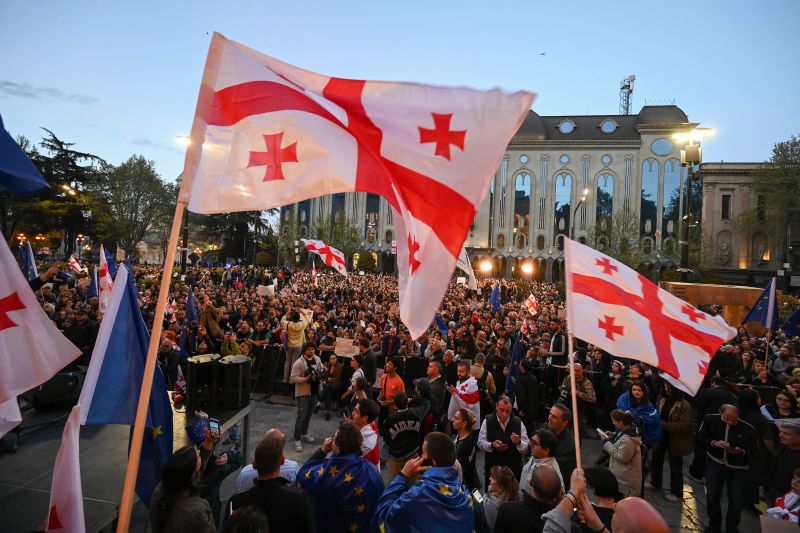Violence erupted in Georgia as thousands of citizens took to the streets to protest against a controversial proposed law, known as the ‘foreign agents’ law. The unrest that has blanketed the country since the announcement of the proposed law is a testament to the divisiveness of the proposal, which ostensibly aims at curbing external influence on domestic affairs.
The idea behind the ‘foreign agents’ law is to monitor and regulate foreign-funded entities operating within the borders of Georgia. This includes a plethora of organizations such as NGOs, civil rights groups, media entities, and other organizations that rely on foreign funds for their operations. The proposed law mandates these organizations to register as ‘foreign agents’, a label many organizations argue paints them as spies or adversaries of the state.
The conflict intensified when groups of protesters and law enforcement agencies confronted each other, leading to violent clashes in the heart of Georgia. The police used tear gas and rubber bullets against protesters, who retaliated with molotov cocktails and stones. The violent exchanges resulted in injuries on both sides, with numerous arrests made by the law enforcement agencies.
Critics of the ‘foreign agents’ law argue that the proposal is a ham-fisted attempt to put a stranglehold on the civil society in Georgia. They claim that such regulations would heavily constrain the work of NGOs, especially those involved in human rights, democracy promotion, and countering corruption. With the term ‘foreign agents’ possessing a negative connotation, the critics contend that the law would further alienate these entities from the public, presenting hindrances in their work towards the betterment of society.
Proponents of the law, on the other hand, claim that it is vital for national security, enhancing the country’s integrity by curbing foreign interference. They assert that the law would not obstruct the functioning of NGOs or other organizations, unless they are directly working against the interests of Georgia. Instead, they believe it would increase transparency and ensure the loyalty of these organizations to the country.
However, the larger concern for many Georgians, who have defied threats and violently clashed with the police, is the diminishing space for civil rights and freedom of expression. They fear that the proposed law would be used as a tool to clamp down on dissent, accusing the government of authoritarian tendencies.
The issue has also drawn international attention, with several global rights organizations and Western countries raising concerns about the proposed law. They deem the proposal as an alarming sign of Georgia backtracking on its democratic principles and commitments to human rights.
As the debate around the ‘foreign agents’ law rages on, the violent clashes serve as a stark reminder of the high stakes involved for the Georgian society. The resolution of this controversy will have far-reaching consequences, potentially altering the trajectory of Georgia’s course on the international stage, the viability of civil society, and the conditions for the promotion of democratic values within the country.




